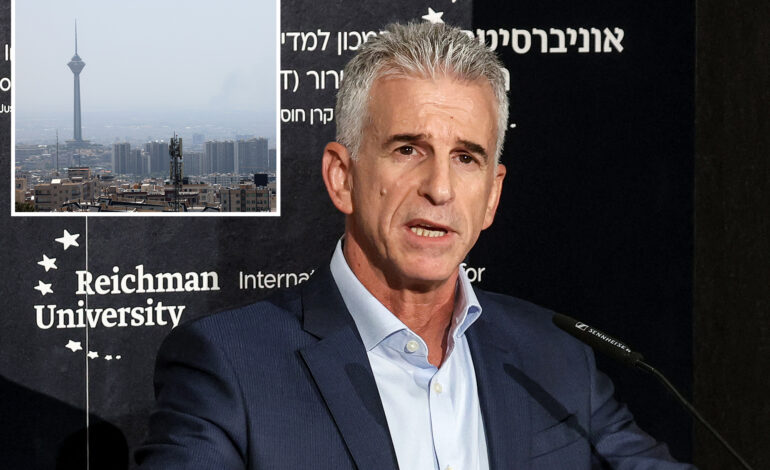Mossad Chief Declares Ongoing Operations in Iran Amid Tensions

David Barnea, the head of Israel’s intelligence agency, Mossad, confirmed that the organization continues to maintain operational capabilities within Iran. During a recent statement, he emphasized that despite the recent 12-day conflict, Mossad remains committed to planning and executing operations, including in the “heart of Tehran.”
Barnea’s remarks come at a time of heightened tensions in the region, following a series of confrontations that saw Israel and Iranian forces engaged in direct conflict. He asserted that Israel emerged victorious from this latest round of hostilities, suggesting that the strategic landscape has not shifted in favor of Iran.
Ongoing Operations and Strategic Objectives
The Mossad chief underscored the agency’s ongoing focus on intelligence gathering and operational planning within Iran. He stated, “We will continue to win,” indicating a resolute commitment to countering perceived threats from the Iranian regime. Barnea’s confidence reflects Israel’s long-standing policy of preemptive action against adversaries that pose risks to its national security.
According to Barnea, the ability to operate effectively within Iran remains crucial for Israel, particularly as the Iranian government continues to advance its nuclear program. The implications of these operations extend beyond military engagements; they also impact diplomatic relations and regional stability.
International Reactions and Implications
Responses to Barnea’s statements vary widely across the international community. While some allies of Israel express support for its security measures, others voice concerns about the potential for further escalation in the region. The United States, a key ally of Israel, has reiterated its commitment to ensuring Israel’s security while also encouraging diplomatic efforts to address Iran’s nuclear ambitions.
In light of Barnea’s assertions, analysts are closely monitoring the situation in Iran and the broader Middle East. The potential for renewed conflict remains, as both Israel and Iran have demonstrated a willingness to engage in aggressive posturing.
The ongoing operations by Mossad highlight the complex interplay of intelligence, military strategy, and international diplomacy in the region. As Barnea stated, Israel’s resolve to protect itself and its interests remains firm, even as it navigates a landscape fraught with tension and uncertainty.
As the situation evolves, the international community will be watching closely to see how these developments may influence future relations between Israel, Iran, and other nations engaged in the dialogue surrounding security and nuclear proliferation.






